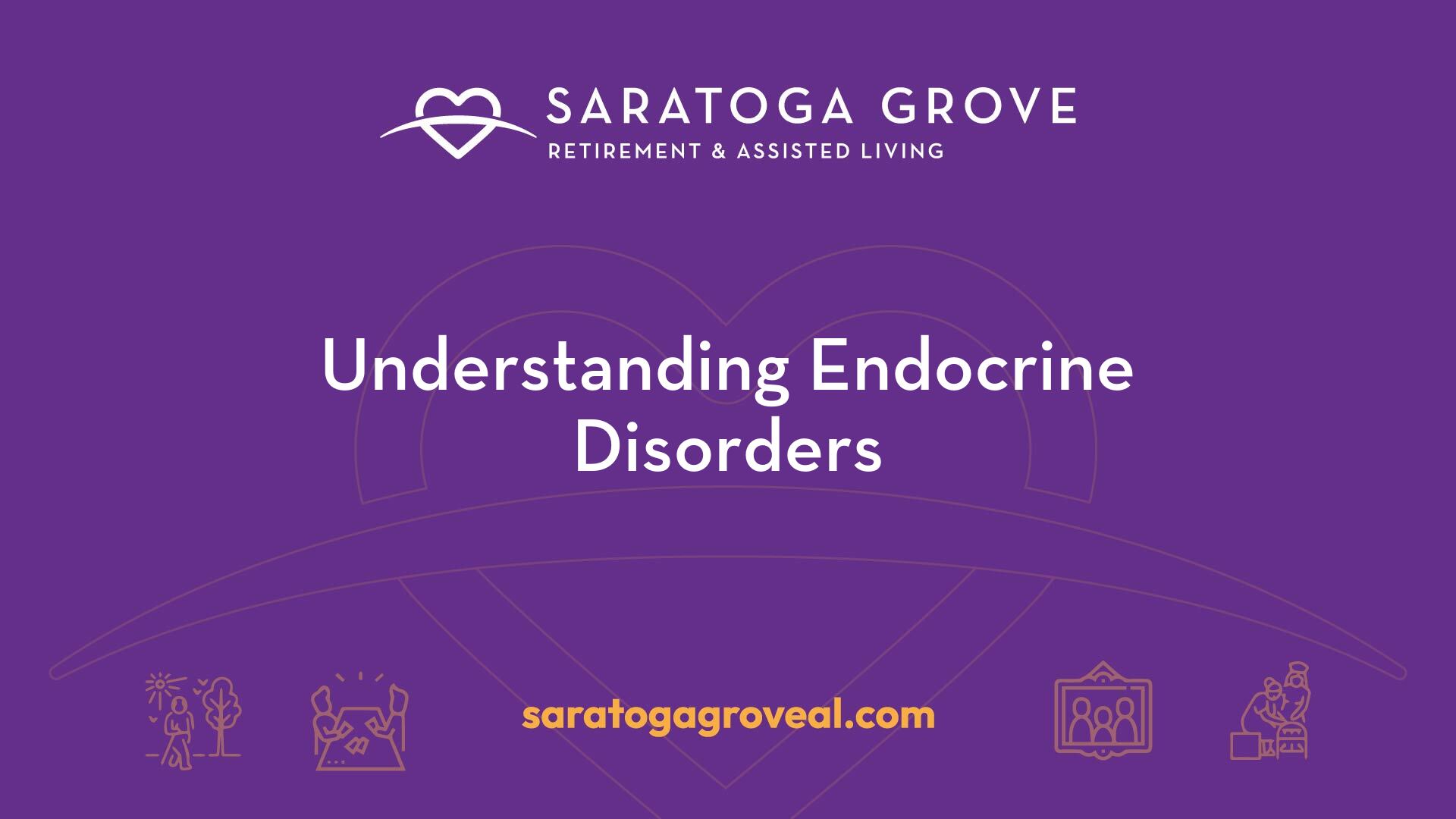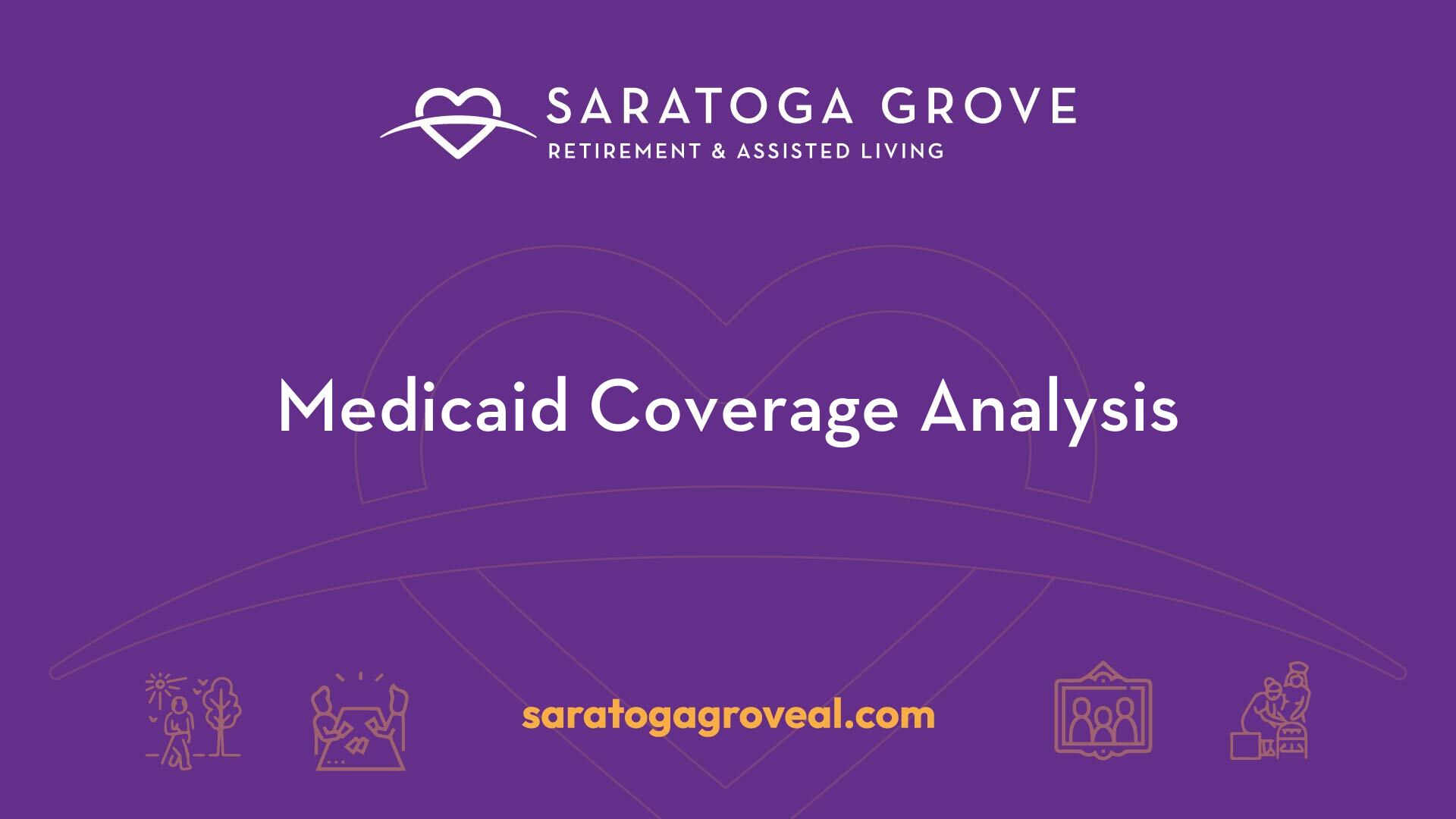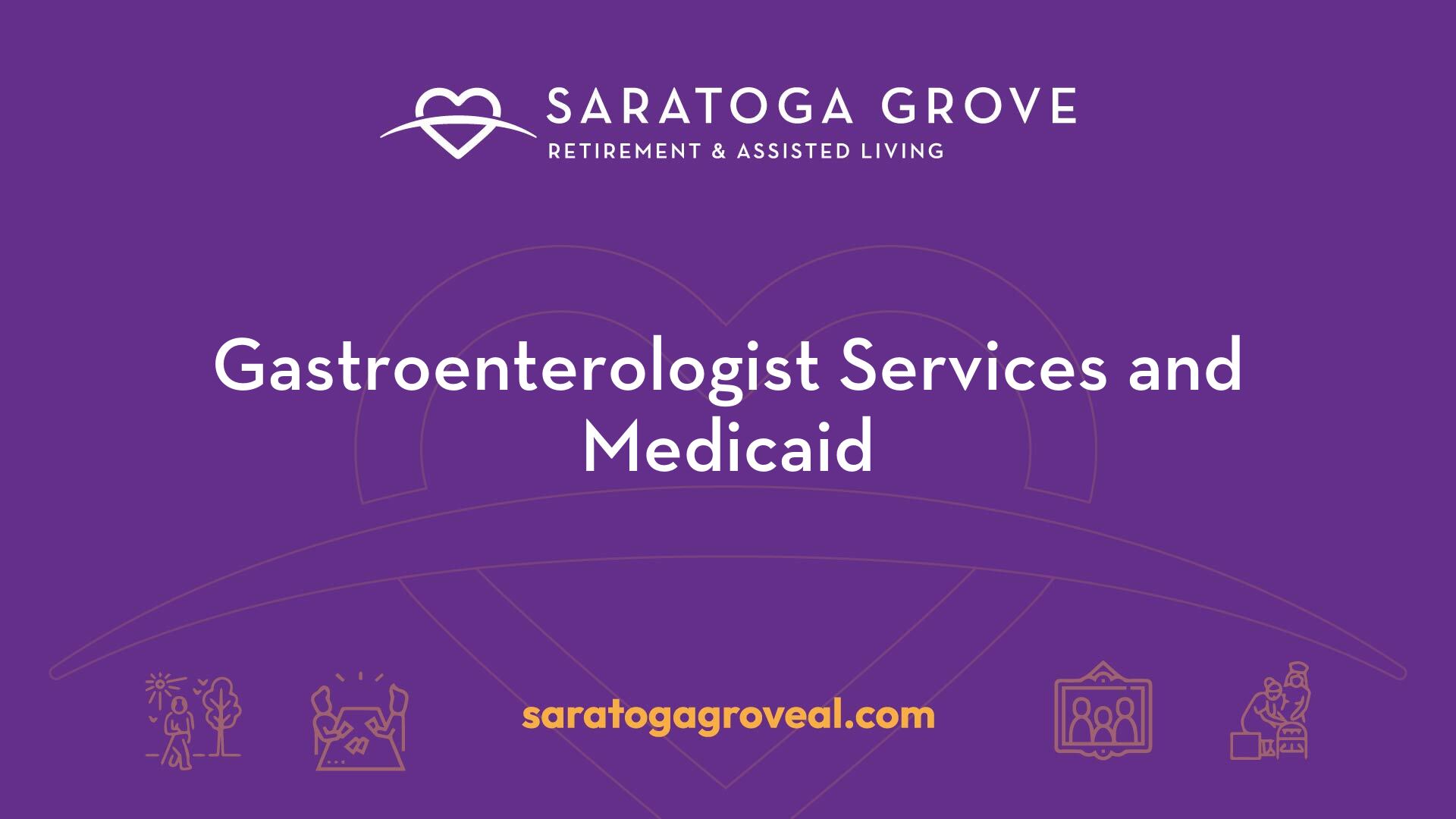
Endocrinologist Services for Improved Health
March 30, 2025
Discover how endocrinologist Medicaid services can enhance health and access for managing endocrine disorders.

Understanding Endocrine Disorders
Endocrine disorders can significantly impact an individual's health, requiring specialized care to manage these conditions effectively. Understanding the role of endocrinologists and the common endocrine conditions they treat is essential for those seeking assistance through endocrinologist medicaid.
Role of Endocrinologists
Endocrinologists are medical specialists focused on diagnosing and treating conditions related to hormonal imbalances and dysfunctions of the endocrine glands. These physicians play a critical role in managing a variety of health issues stemming from hormonal disorders, including diabetes, thyroid conditions, osteoporosis, and reproductive disorders (DownersGroveHC).
A comprehensive understanding of an individual's hormonal balance is vital, as it directly affects metabolism, growth, sexual development, and overall health. Endocrinologists assess hormonal levels, provide personalized treatment plans, and monitor their patients' health to ensure effective management. Treatment may include medications, lifestyle changes, and regular health evaluations to optimize well-being.
Common Endocrine Conditions
Endocrinologists treat a variety of hormonal disorders. The following table summarizes some of the most prevalent endocrine conditions:
ConditionDescriptionDiabetesA chronic condition that affects how the body processes glucose.Thyroid DisordersImbalances in thyroid hormones leading to conditions such as hypothyroidism or hyperthyroidism.OsteoporosisA condition characterized by weak bones, often related to hormonal changes.InfertilityDisorders affecting reproductive hormones, resulting in difficulty conceiving.Hormonal ImbalancesConditions related to fluctuations or deficiencies in hormones during stages like menopause or puberty.Growth DisordersIssues related to growth hormone deficiencies, affecting physical development.Endocrine Cancers and TumorsMalignancies or growths that affect the endocrine glands, requiring specialized treatment.
Endocrinologists provide crucial support for individuals grappling with these conditions. They assist patients in navigating their health and finding effective treatment options through services covered by Medicaid. For those interested in connecting with relevant healthcare providers, exploring options like medicaid providers in new york may be beneficial.

Seeking Endocrinology Care with Medicaid
Understanding how Medicaid covers endocrinology services is key for individuals looking to manage their health effectively. There are specific coverage details, eligibility requirements, and criteria that applicants must navigate.
Medicaid Coverage for Endocrinology
Medicaid typically provides coverage for a broad range of essential healthcare services, including endocrinologist visits. This coverage includes various services focused on diagnosing, treating, and managing endocrine-related conditions such as hormonal imbalances, diabetes, thyroid disorders, and more.
Common services covered by Medicaid involve:
Service TypeDescriptionHormone Level TestsBlood tests to determine hormone levels.Thyroid Function TestsAssessments to evaluate thyroid health.Diabetes ManagementOngoing monitoring and treatment for diabetes.
It is essential to be aware that while endocrinologist services are generally covered, certain limitations and restrictions may apply based on individual circumstances and state regulations.
Eligibility and Criteria
To gain access to endocrinologist services through Medicaid, it is vital to understand the eligibility criteria. These criteria include specific income and asset limits, which are typically aligned with the Federal Poverty Level (FPL). Factors impacting eligibility may include:
CriteriaDescriptionAgeVaries by program, often includes seniors.Disability StatusIndividuals with disabilities may qualify.PregnancyPregnant women are often given priority.Household SizeThe number of individuals living in a home influences limits.
These requirements may differ by state, so applicants should check resources specific to their locality. It's essential to review one's qualification against the specifics of their state Medicaid program as outlined in resources like who qualifies for emergency medicaid in ny.
By understanding both the coverage options and the eligibility criteria, individuals can make informed decisions regarding their access to vital endocrinology services under Medicaid.

Challenges for Medicaid Patients
Navigating the healthcare system can present significant challenges for Medicaid patients, particularly when seeking specialized care such as endocrinology services. Key challenges include appointment accessibility and disparities in care.
Appointment Accessibility
Appointment accessibility is a major hurdle for patients using Medicaid. Research indicates that Medicaid patients are 3.3 times less likely to successfully schedule a specialty appointment compared to their privately insured counterparts (NCBI). Additionally, a meta-analysis revealed a 1.6-fold lower likelihood of successfully scheduling primary care appointments for these patients. These statistics underscore the difficulties faced by Medicaid recipients in obtaining timely medical care.
Challenges in accessing appointments are even more pronounced for adult Medicaid patients. They encounter greater barriers in securing specialty care appointments than pediatric patients. This disparity can lead to delays in diagnosis and treatment, significantly impacting health outcomes.
Appointment TypeMedicaid Patients (Likelihood)Privately Insured Patients (Likelihood)Relative RiskPrimary Care1.6-fold lowerHigher likelihood1.6Specialty Care3.3-fold lowerHigher likelihood3.3
This trend has worsened post-Patient Protection and Affordable Care Act (PPACA), with Medicaid patients now having a 3.2-fold lower likelihood of securing an appointment compared to their privately insured peers (PubMed).
Disparities in Care
Disparities in care highlight the inequities faced by Medicaid patients in accessing healthcare services. Studies show that Medicaid patients struggle more than those with private insurance to obtain timely appointments, particularly for specialty services such as endocrinology (NCBI). This access gap can contribute to delayed treatments and preventable complications.
Adult Medicaid patients experience a statistically significant disadvantage when compared to adult patients with private insurance, with a relative risk of 2.6 for securing appointments. This disparity illustrates the hurdles that Medicaid patients encounter, which can ultimately affect their overall health and well-being.
Addressing these challenges requires systemic changes to improve access to endocrinologist services for Medicaid patients. For further assistance and resources, Medicaid recipients can benefit from understanding their benefits better, checking options available in Medicaid providers in New York, and knowing about new york state medicaid card.

Treatment of Endocrine Disorders
Treating endocrine disorders involves a comprehensive approach that includes accurate diagnostic methods and a variety of treatment options. Understanding these two components is essential for effective management of conditions affecting hormonal balance.
Diagnostic Approaches
Diagnostic methods for assessing endocrine disorders are crucial for devising appropriate treatment plans. Common approaches include:
Diagnostic MethodPurposeMedical HistoryInitial assessment of symptomsBlood TestsMeasure hormone levelsUrine TestsDetect hormonal imbalancesUltrasound/MRIVisualize endocrine gland structureGlucose Tolerance TestDiagnose diabetes
For a deeper understanding of these tests, individuals can consult resources like medicaid providers in new york.
Treatment Options
Once diagnosed, there are several treatment strategies available for managing endocrine disorders. These may include:
Treatment OptionDescriptionMedicationHormone replacements and other drugsLifestyle ModificationsDiet and exercise adjustmentsSurgerySurgical intervention if neededRadiation TherapyFor tumors or gland-related conditionsIntegrative ApproachesCombining conventional and alternative therapies
Endocrinologists play a vital role in customizing treatment plans, ensuring that they meet individual needs while managing conditions such as diabetes, thyroid disorders, and infertility effectively (DownersGroveHC). Ensuring access to these services under Medicaid can significantly impact a patient's health journey. For more information on accessing services, refer to our section on who qualifies for emergency medicaid in ny.

Medicaid Coverage Analysis
Costs and Reimbursement
Medicaid generally provides coverage for various endocrinology services, ensuring individuals receive necessary medical attention for hormone-related disorders. The services typically covered include management of conditions like diabetes and thyroid diseases, although the extent of coverage can differ among states. The reimbursement process involves claims submission detailing the services provided to beneficiaries. Medicaid reimburses based on a predetermined fee schedule that varies by state (DownersGroveHC).
Common services eligible for Medicaid reimbursement include laboratory tests, diagnostic procedures, medication management, and follow-up visits. Below is a summary of how reimbursement works and co-payment expectations:
Service TypeEligible for Medicaid CoverageCo-payment StructureLaboratory TestsYesBased on income levels and state regulationsDiagnostic ProceduresYesVaries typically from $0 to $4Medication ManagementYesBased on income levelsFollow-up VisitsYesMay vary on a case-by-case basis
Quality of Care Comparison
Assessing the quality of care between Medicaid-covered services and private insurance reveals notable differences. A report from the Kaiser Family Foundation indicates a trend where Medicaid patients may exhibit increased dependency on emergency departments rather than office visits. Specifically, Medicaid coverage was associated with more emergency department visits and fewer office visits compared to private Marketplace coverage. This phenomenon may stem from challenges in appointment accessibility for Medicaid patients (PubMed).
Recent research demonstrates that Medicaid patients are 3.2 times less likely to secure an appointment with specialists, including endocrinologists, in comparison to privately insured patients post-Patient Protection and Affordable Care Act (PPACA) (PubMed). The differences in care experiences also extend to costs, as total expenses were found to be 83% higher in Marketplace coverage, with out-of-pocket spending being ten times greater in that domain.
These disparities in care access and experiences highlight the importance of understanding both costs and the quality of services available when navigating the intricacies of endocrinologist medicaid.
Accessing Endocrinologist Services
When seeking endocrinologist services, navigating referrals, wait times, and cost considerations is essential for individuals covered by Medicaid.
Referrals and Wait Times
To see an endocrinologist, a referral from a primary care physician is typically necessary. This is because while primary care doctors can diagnose and treat basic hormonal conditions, the expertise of an endocrinologist may be required for more complex issues. The collaboration between a primary care physician and the endocrinologist ensures comprehensive medical care for the patient (Healthdirect Australia).
Patients should be aware that some specialists, including endocrinologists, may have extended wait times for appointments. This waiting period can significantly affect timely access to necessary care (Healthdirect Australia).
The following table illustrates the average wait times for various types of specialists:
Specialist TypeAverage Wait Time (Days)Primary Care Doctor7Endocrinologist30Gastroenterologist45Cardiologist60
Cost Considerations
The cost of seeing an endocrinologist can greatly vary based on factors such as the type of care required, whether hospital treatment is necessary, and the fee set by the endocrinologist. For individuals with Medicaid, understanding the financial aspects is critical. Medicaid may require beneficiaries to pay co-payments or out-of-pocket expenses for some services, including endocrinology visits. These costs usually correlate with income levels and can differ by state (Spring Hills).
Before scheduling an appointment, it is advisable for patients to inquire about the costs associated with the visit and any potential Medicaid rebates that may apply. Here’s a breakdown of possible cost implications:
Cost ComponentDescriptionConsultation FeeVaries by providerCo-paymentBased on income levelOut-of-pocket ExpensesDepending on treatmentMedicaid RebateAvailable for eligible services
Understanding the eligibility criteria for Medicaid is also vital. Eligibility usually includes limits on income and assets, with consideration given to factors like age, disability status, pregnancy, and household size. To learn more about specific Medicaid services, visit our page on Medicaid providers in New York.
Accessing endocrinology services requires careful navigation of these considerations to ensure individuals receive the appropriate care while managing costs.


































































































